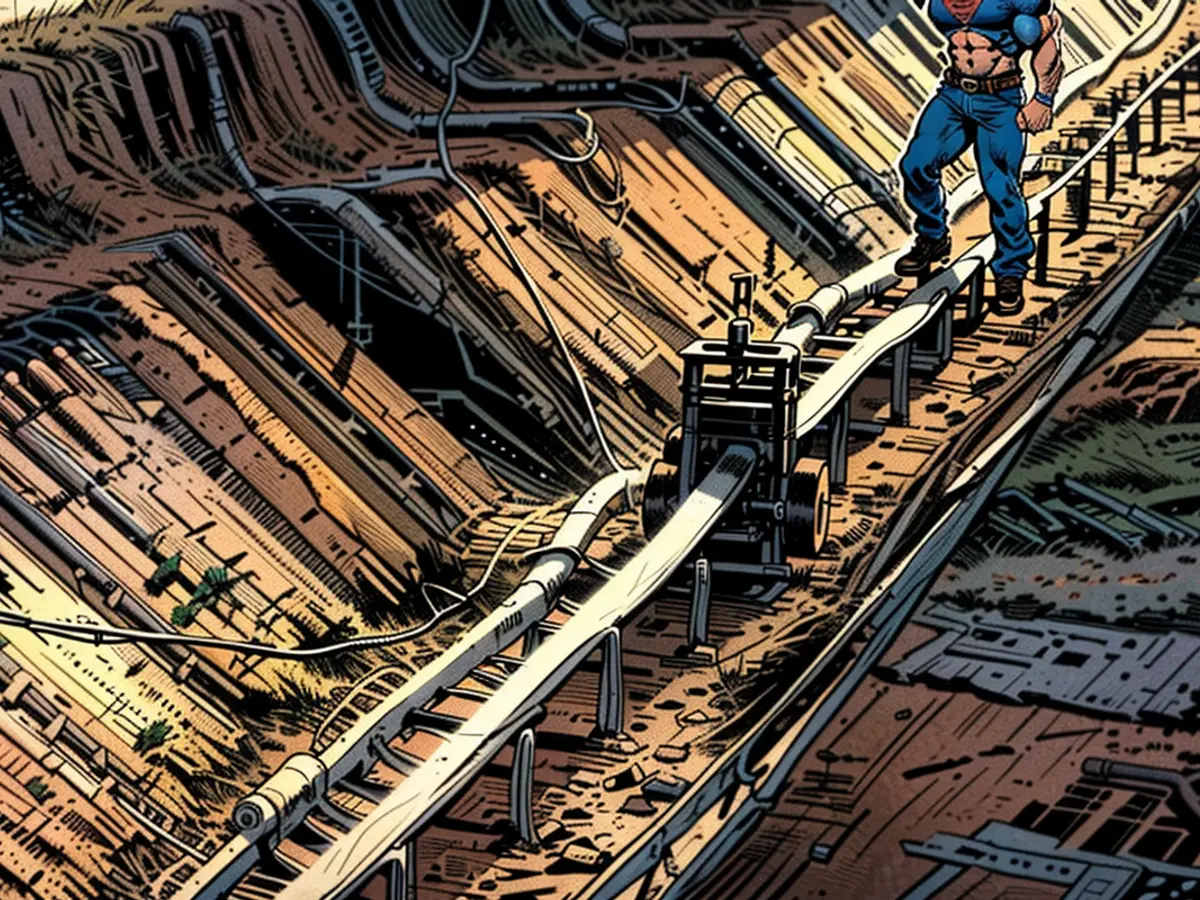Energy from wind power - FDP will avoid Earth cable building in power lines
In the dispute over the construction of three large power lines for wind power transmission, the FDP Bundestag faction is advocating for a switch from the legally prescribed earth cabling to overhead lines.
"As Free Democrats, we want to expand the grid with more overhead lines because it is cheaper, faster, and requires fewer interventions," said Michael Kruse, energy policy spokesperson for the FDP Bundestag faction, to "Welt am Sonntag." Earth cabling should only be used where an overhead line is not feasible, such as in the immediate vicinity of residential buildings.
Lower Saxony continues to support earth cabling
"Over 35 billion Euros in network fees can be saved," said Kruse. The fact that SPD and Greens in state governments are advocating for an especially costly and expensive grid expansion is "a blackout for the interests of electricity consumers and a setback for industrial locations." The red-green ruled Lower Saxony, on whose territory part of the routes run, insists on earth cabling.
The Bundestag and Bundesrat currently have applications before them, in which the CDU/CSU or the federal states of Saxony and Baden-Württemberg are advocating for the existing priority of earth cabling in the construction of high-voltage lines to be relaxed. Specifically, this concerns the three large projects Nord-West-Link, Süd-West-Link, and Ost-West-Link, which are intended to transport wind power from the north to the south and east of Germany.
- In contrast to the FDP's stance on overhead lines for wind power transmission, Lower Saxony strongly supports the use of earth cabling.
- The dispute over the construction of power lines for wind power transport has also reached the Federal Parliament, involving applications from CDU/CSU and federal states like Saxony and Baden-Württemberg.
- Michael Kruse, the energy policy spokesperson for the FDP Bundestag faction, has boarded the Federal Parliament to advocate for the switch from earth cabling to cheaper and faster overhead lines.
- The construction of three extensive power lines for wind power transmission, such as Nord-West-Link, Süd-West-Link, and Ost-West-Link, is facing opposition due to the cost and complexity of earth cabling, as noted by the FDP.
- Berlin and other industrial locations could greatly benefit from the potential savings of over 35 billion Euros in network fees, as suggested by the FDP, if the grid expansion to transport wind power is accomplished using overhead lines.
- The current controversy between the FDP and Lower Saxony over the power lines' construction is based on differing views regarding environmental impact, cost efficiency, and the overall energy strategy in Germany.








